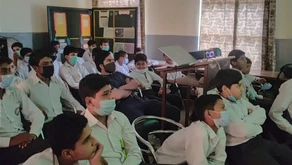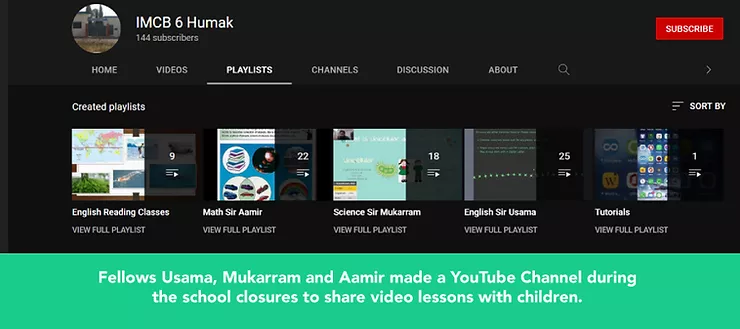The Urgency that is Required

Among other things, public education has a vital role to play in the shaping of social equity for future generations. This is why free public education is an inalienable right in Pakistan’s constitution. However, this goal requires genuine and meaningful effort on the part of the various stakeholders involved. Given Pakistan’s nature as a developing country, the provision of public education does not fulfil the criteria as it does not yet come close to the education and opportunities offered by elite private institutions. In other words, education as a competitive endeavor had already been significantly geared against children belonging to low-income families.
Against this backdrop, the Covid-19 school closures have put the aspiration of equity at a larger risk than perhaps ever before. My journey as a Teach For Pakistan Fellow began right in the middle of school closures and when I stepped into the classroom, my students had already been demonstrating significant learning losses after the first round of school closures. Now, after multiple rounds of school closure, I can see the real consequences of these learning losses in the students I work with every day. While elite private schools had, for the most part, made the transition to online learning, the majority of our public and low-income private schools were unable to deliver.
Undoubtedly, there are several logistical challenges in conducting successful distance learning measures in these schools. However, it is not enough for us to simply give in to accepting the circumstances. This was a period during which most of them also lost what they had previously learnt. Now, when they are back at schools we need to increase the urgency of mitigating students’ losses. There are plenty of remediation strategies that can be utilized to decrease the losses our students have faced. They need extra support, without which their growth will remain stunted.
As a Teach For Pakistan Fellow, I have seen the many ways in which a teacher’s resolve can stand up to these challenges. In my school, my co-Fellows and I worked on increasing our students’ digital access and continuing their education online. In other schools, we saw brilliant strategies to provide this support via learning packs. Since schools reopened, we have been paying extra attention to the students who were hit with learning losses the worst. But these strategies need to be scaled. They need the support of the larger education ecosystem which includes the government, educationists, private school associations, parents, etc.
The question cannot be simply about whether or not students are currently attending school. The question needs to be, ‘what do our public school students require to ensure they have access to similar future opportunities as students from private institutions?’ This is, indeed, a question of social justice. Otherwise, we need to ask ourselves if we are okay with a society in which resources and opportunities have been allocated only on the basis of access to quality education.

2020 Fellow, Mohammad Usama teaches English to 7th graders in a school in Sihala, Islamabad. Usama completed his BS in Social Sciences from IBA, Karachi.